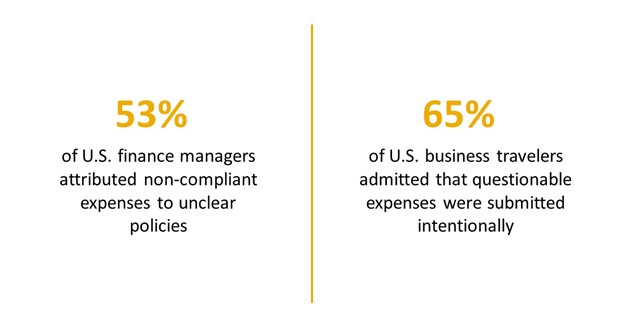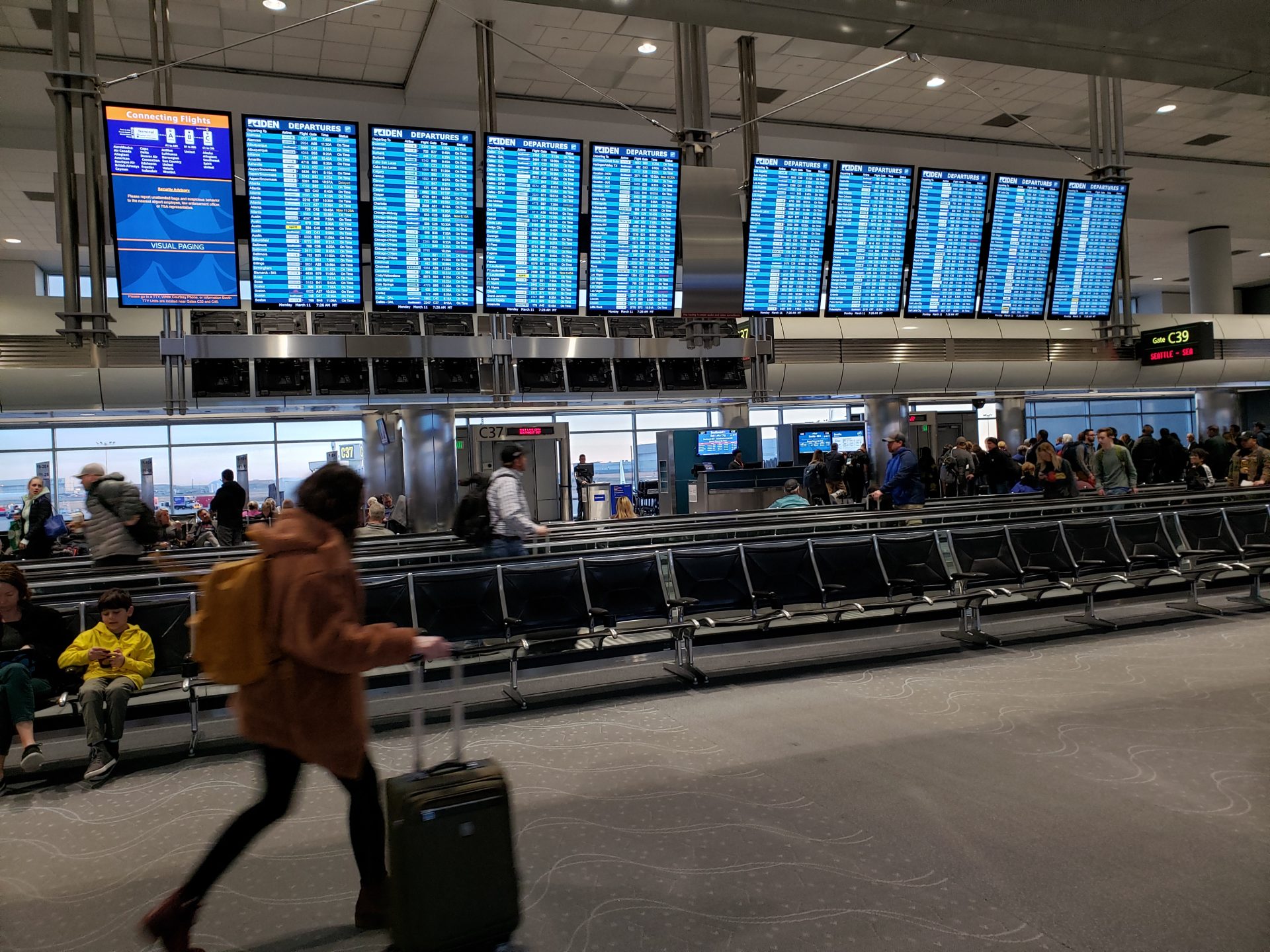By Jessica Staley.
There’s a quiet conflict taking place within today’s organizations: Finance leaders and employees are at odds. According to a 2022 survey, these groups have conflicting perspectives on business travel and what constitutes appropriate expenses—and it’s costing their companies money.
While 36% of business travelers said it was extremely likely that their industry would see an increase in business travel before the end of 2022, finance managers were less convinced—only 12% of them agreed with this sentiment.

Additionally, at the start of 2022, a mere 16% of finance managers felt their company was ready to handle an increase in business travel before the end of the year, compared to 39% of business travelers.

Regardless of early 2022 sentiments, current data shows that business travel volumes are indeed increasing. However, many organizations are relying on fewer employees to handle the bulk of business travel. Four in five global business travelers (82%) report their company is returning to pre-pandemic levels but with a “more travel on fewer shoulders” approach. Additionally, three in five (61%) say that their current travel schedules are falling short of their expectations.
Finance managers and business travelers clash regarding expense policies and compliance as well. Ninety-eight percent of finance managers said they saw an increase in non-compliant expenses in 2021. That is consistent with what business travelers report, as 89% admitted to submitting at least one travel expense last year that could violate their company’s travel policies. And while 53% of finance managers attributed these non-compliant expenses to unclear policies, nearly two-thirds (65%) of business travelers admitted that questionable expenses were submitted intentionally.

Non-compliant expenses can make an impact on a company’s finances, especially in today’s economy. The average value of non-compliant expenses submitted by business travelers in 2021, according to our survey, was a whopping $3,397.
There’s also strife when it comes to reimbursement: 86% of business travelers reported that their company had been delayed in reimbursing their business expenses at least once in 2021—and 89% noted that such delays have an impact on their personal finances.
As travel volume increases, business traveler requirements matter more than ever. Ninety-one percent of global business travelers say flexible travel and booking options are essential to protect their health and safety. However, 52% of U.S. business travelers said their company leadership could have better prepared for an increase in travel, by offering them more flexibility and control.
So, what can a company do to resolve these tensions?
- Invest in solutions: Companies need to evolve their compliance toolkit while keeping employees productive and happy. Fortunately, technology advances offer solutions for all roles. Travelers can take advantage of real-time travel updates and booking apps as well as tools for quicker reimbursement and navigating safety requirements. Finance can upgrade their audit processes by using AI-driven automation, leading to 100% coverage. The threat that reimbursement requests will be scrutinized is a big motivator for employees to do the right thing.
- Update your policy purposefully: Review your policy at least once a year and learn what’s working by directly surveying your road warriors. Is the policy easy to understand? What scenarios did you run into that weren’t covered? Where were the pain points this year?
- Reduce ambiguity: Ensure your policy addresses the bigger picture—the reason that specific rules exist. Clarify company expectations. Proactively address ambiguous scenarios and best practices to meet compliance. Who pays for TSA pre-check? How does the company handle personal travel added to work travel? When an employee understands the rationale behind guidelines, they tend to be more invested in following them.
Are travel- and expense-related conflicts simmering in the background of your organization? By taking a few strategic steps—with a focus on policy refinement and thoughtful automation choices—you can create a culture of collaboration that helps your employees see eye to eye.
=====
Jessica Staley is VP of ISBN product success at SAP.
Thanks for reading CPA Practice Advisor!
Subscribe Already registered? Log In
Need more information? Read the FAQs
Tags: Accounting, Financial Planning, Taxes




